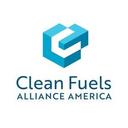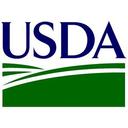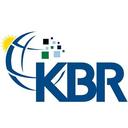Canadian National Railway and Canadian Pacific Kansas City, the country’s two largest rail carriers, on Aug. 26 resumed operations after the Canadian Industrial Relations Board took action over the weekend to end a work stoppage that began Aug. 22.
EcoCeres Inc., a leading pure-play renewable fuel producer, delivered its first vessel with 10 million liters of a sustainable blending component for jet fuel (neat HEFA-SPK) to the Evos Ghent terminal.
Getting into the (sea)weeds: Exploring algae storage for biofuel conversion
Idaho National Laboratory is exploring the potential of processing sargassum, a type of seeweed, for conversion to biofuel. The team is working with affected communities and starting with the question of how to store the stuff.
Sens. Sherrod Brown, D-Ohio, and Pete Ricketts, R-Neb., in August introduced the Renewable Chemicals Act, a bill that aims to create a tax credit to support the production of biobased chemicals.
The Canadian government on Aug. 19 announced it will award up to C$6.59 million to Bioindustrial Innovation Canada to support the development of technologies to produce bioenergy, biofuels and biomaterials.
Clean Fuels Alliance America is disappointed in proposed changes to California’s LCFS that would impose caps on credits for soy- and canola-based biodiesel and renewable diesel, without sufficient scientific evidence to support such limitations.
Topsoe has signed an agreement with HOLBORN Europa Raffinerie GmbH (HOLBORN), to provide its HydroFlex technology for the production of SAF and renewable diesel at its plant in Hamburg, Germany.
DB Cargo U.K. has announced that all trains it operates for Drax Group in and out of the U.K.’s largest renewable energy plant near Selby, will be powered by environmentally friendly hydro-treated vegetable oil (HVO).
The Royal Air Force is ensuring Britain is secure while using sustainable aviation fuel (SAF) on routine operations for the first time - a move that will cut carbon emissions and bolster energy security.
Tidewater Renewables Ltd. on Aug. 15 reported that its biorefinery in Prince George, British Colombia, operated at near capacity during Q2. Work is progressing on a potential SAF project and the company is working to improve financial liquidity.
The Iowa Biodiesel Board and Iowa Soybean Association are concerned proposed amendments to the California Low Carbon Fuel Standard would impose caps on credits for soy- and canola-based biodiesel and renewable diesel.
The USDA on Aug. 16 awarded $90.3 million in Higher Blends Infrastructure Incentive Program grants to 89 projects in 26 states. The investments will help business owners install and upgrade fueling infrastructure.
The Federal Aviation Administration on Aug. 16 awarded $244.5 million to 22 projects that produce, transport, blend or store sustainable aviation fuel (SAF) and for scoping studies related to SAF infrastructure needs.
More than 2.24 billion RINs were generated under the RFS in July, up from 1.99 billion generated during the same period of last year. Total RIN generation for the first seven months of 2024 reached 14.42 billion.
The U.S. EPA on Aug. 15 released updated SRE data, reporting that two new SRE petitions were filed under the RFS during the past month. A total of 48 SRE petitions are now pending, up from 46 that were pending as of mid-July.
There were 56 biodiesel plants with a combined 2.09 billion gallons per year of production capacity in the U.S. as of Jan. 1, 2024, according to data released by the U.S. Energy Information Administration on Aug. 15.
The U.S. was home to 22 renewable diesel plants with a combined 4.328 billion gallons of annual production capacity as of Jan. 1, 2024, according to data released by the U.S. Energy Information on Aug. 15.
Honeywell and Repsol on Aug. 12 announced a collaboration to create new production pathways for biofuels and circular materials. The two will also explore the possible integration of these methods into Repsol’s existing facilities.
The California Air Resources Board on Aug. 12 published a notice outlining modifications to its proposed LCFS amendments, including those related annual carbon intensity (CI) targets, biomass-based diesel feedstocks, and SAF.
The Surface Transportation Board is seeking nominees to fill five vacancies on its Rail Energy Transportation Advisory Committee. One vacancy is to be filled by a biofuel producer or feedstock grower.
The 2024 North American SAF Conference & Expo will consist of panels that describe the newest developments in the SAF Industry. Topics such as biofuel crops, federal policies, the increase of SAF usage worldwide, and more will be presented.
The USDA maintained its forecast for 2024-’25 soybean oil use in biofuel production in its latest World Agricultural Supply and Demand Estimates report, released Aug. 12. The forecast for soybean production was revised up.
U.S. soybean production for 2024 is currently forecast at a record high 4.59 billion bushels, up 10% from last year, according to the Crop Production report released by the USDA National Agricultural Statistics Service on Aug. 12.
Calumet Inc. on Aug. 9 released Q2 financial results for Calumet Specialty Products Partners L.P., reporting the company’s Montana Renewables business achieved record SAF production of approximately 7 million gallons.
Reps. Mike Flood, R-Neb., and Troy A Carter, Sr., D-La., on Aug. 9 introduced the Sustainable Aviation Fuel (SAF) Information Act. The bill directs the U.S. Energy Information Administration to include SAF data in its weekly and monthly reports.
Vertex Energy Inc. on Aug. 8 announced it has ceased renewable diesel production at its refinery in Mobile, Alabama. The company is working to convert its hydrocracker back to conventional service and expects to be processing crude oil by Q4.
Castlerock Green Energy LLC has announced the receipt of an investment of approximately $9 million by Nexus Development Capital LLC into Castlerock Biofuels LLC, a joint venture company led by CGE and Ensyn Corp.
The U.S. exported 67,622.2 metric tons of biodiesel and biodiesel blends of B30 and greater in June, according to data released by the USDA Foreign Agricultural Service on Aug. 6. Biodiesel imports reached 99,610.1 metric tons for the month.
The Port of Tacoma in May began using a blend of 99% renewable diesel in its diesel-powered equipment. The fuel change is helping the port reduce greenhouse gas (GHG) and particulate matter (PM) emissions.
KBR announced on Aug. 6 that Avina Clean Hydrogen Inc. has selected the sustainable aviation fuel technology, PureSAF, for its project in the US. Developed by Swedish Biofuels, PureSAF technology is exclusively licensed by KBR worldwide.
Advertisement



























